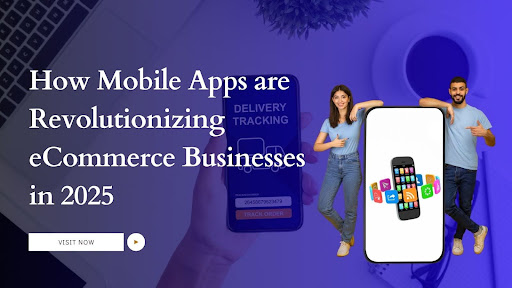The digital shopping scene has changed a lot, and mobile apps are causing a revolution in this shift. Shoppers now want quick, easy, and personal buying experiences on their phones. This change gives new chances to companies ready to put mobile first and team up with app makers to build engaging digital experiences.
Mobile apps are now key to success in online sales offering features that regular websites can’t match. From quick alerts to tailored suggestions mobile apps are changing how businesses link up with customers and boost sales.
The Mobile Shopping Revolution Explained
Mobile apps have changed the game in commerce. They’re not like the old ways of shopping. These apps give you quick access to stuff you want to buy. They link businesses straight to customers, and they never close.
This change is about more than just being handy. Mobile apps create a world where you can shop . You can look at things, compare them, and buy them in no time. Because it’s so quick, people now expect shopping to always be fast and easy.
Why Mobile Apps Help eCommerce Win
Better Design for Users
Mobile apps give users a great experience. They’re made just for smartphones. Everything from the menus to the way you pay is set up for touchscreens and small displays.
Today’s online shopping apps offer features that make buying easier:
- Quick loading and offline browsing
- Easy-to-use controls with touch gestures
- Quick checkout with saved payment details
- Clear product photos you can zoom in on and view from all angles
- Voice search and barcode scanning
Ways to Talk to Customers
Push notifications are one of the best marketing tools for mobile apps. These messages reach customers right away giving chances to engage them and make sales.
Good ways to use push notifications include:
- Suggesting products based on what you’ve looked at before
- Letting you know about quick sales and special app-deals
- Reminding you about items left in your cart, with offers to buy
- Telling you when your order is confirmed and shipped
- Announcing new products
Better Ways to Collect Customer Data
Mobile apps give businesses a clearer picture of how customers behave, which regular websites can’t do. This information helps companies figure out what customers like, improve their products, and create ads that speak to people.
Working with a leading mobile app developer makes sure you set up the right tools to turn all that raw data into useful business ideas.
New Tech That’s Changing Mobile Shopping
Using AI in Apps
AI features are now common in modern shopping apps. This tech creates smarter shopping experiences that change based on what each customer needs.
Some ways AI is used include:
- Smart product suggestions based on what you’ve bought before
- Chatbots that give quick help to customers
- Flexible pricing that changes with demand
- Auto-managed stock with alerts when it’s low
- Custom content delivery that fits what you like
AR Makes Shopping Feel Real
AR tech lets shoppers see products in their own space before they buy. This new idea cuts down on returns and makes online shoppers feel more sure about what they’re getting.
People use AR for:
- Trying on clothes and accessories without leaving home
- Seeing how furniture would look in their house
- Testing makeup and beauty stuff
- Comparing how big things are
- Watching products work in real time
Better Ways to Keep Things Safe
Today’s smartphone apps come with advanced security features to safeguard customer information and financial data. These tools help build customer confidence and promote return business by offering safe, stress-free shopping.
Security features include:
- Fingerprint and face recognition for user verification
- Secure payment processing with data tokenization
- Protected data storage with full encryption
- Algorithms to spot and flag suspicious activity
- Multiple verification steps to protect user accounts
Strategic Benefits of Custom Mobile App Development
Companies that team up with a custom mobile app development company gain a big edge over competitors through made-to-order solutions that match their specific business goals.
Custom apps offer these perks:
- Brand Identity Integration: Apps that show unique brand values and looks
- Scalable Architecture: Solutions built to grow as businesses expand
- Seamless System Integration: Links to existing business tools and platforms
- Performance Optimization: Apps created for specific target audience needs
- Long-term Cost Efficiency: Less reliance on third-party platforms and services
Customer Loyalty and Retention Strategies
Mobile apps are great at building lasting customer relationships through features that aim to boost repeat business and brand loyalty.
Effective loyalty strategies include:
- Reward programs with points and special perks
- Custom shopping based on what you like
- Ways to share and create content with others
- Special deals just for app users who get first dibs
- Easy customer help with instant chat
New Trends Shaping Mobile Shopping’s Future
Mixing in Social Media
Mobile apps now add social media stuff. This lets shoppers share products, read what others think, and buy based on what friends suggest. It makes shopping feel more like hanging out with others.
Sign-Up Services
Many shopping apps offer sign-ups for things you buy often. This gives the app steady money and makes ordering easy for customers.
Works on Different Devices
Today’s app makers aim to build apps that work the same way on phones, tablets, and computers. This lets customers switch between devices without any hiccups.
Tracking Mobile App Performance
Successful mobile shopping apps keep an eye on key numbers that show business growth and how much people use the app.
Important numbers to watch include:
- How many new users join and stick around
- How long and how often people use the app
- How many sales happen and how much people spend
- How much money a customer brings in over time
- App store scores and what users say about the app
Steps to Make Business Apps Work
Planning and Building Stage
To make a mobile app work well, you need to plan and think ahead. Companies should set clear goals, know who they’re making the app for, and list what they want the app to do before they start building it.
Checking and Making Sure It Works
Extensive testing makes sure apps work well on many devices and operating systems. Quality checks find and fix problems before public release stopping bad user experiences.
Launch and Marketing Strategies
Good app launches mix smart marketing plans with easy-to-use setup steps. Successful launches get initial users while building a base for future growth.
Conclusion
Mobile apps are causing a revolution in eCommerce by creating more engaging, handy, and profitable ways to shop. Companies that use mobile-first plans set themselves up for ongoing growth and an edge over competitors in an online market.
The shift needs careful planning, expert training, and constant tweaks to improve. Teaming up with a seasoned mobile app development company brings the tech know-how and market smarts needed to build mobile commerce tools that work.
Tomorrow’s winners will be those who see that mobile apps aren’t just nice-to-haves for their online shops – they’re key building blocks for success in today’s digital marketplace. Firms that move fast to create full-featured mobile solutions will grab market chances while others struggle to keep up.
Now’s the time to build mobile apps. Each day without a mobile presence means less money fewer customer links, and a weaker spot in the fast-changing world of online selling.
Asked Questions
Q1. What makes mobile apps more effective than mobile websites for eCommerce?
Mobile apps beat mobile websites in eCommerce. They run faster, work offline, send notifications, and tailor experiences to users. Apps also gather more data and build stronger bonds with customers through brand-specific interactions.
Q2. How long does it take to develop a professional eCommerce mobile app?
The time to build apps changes based on how complex they are and what features they have. Usually, it takes 3-8 months. Simple apps might finish quicker, but full-featured ones need more time. A pro app company can give you exact timelines once they know what you want.
Q3. Should small businesses invest in mobile app development?
Mobile apps have a positive impact on businesses of all sizes. They boost customer engagement drive sales, and create brand loyalty. Small and medium-sized companies can now access affordable app development options giving them a competitive edge.
Q4. What are the ongoing costs associated with mobile app maintenance?
App maintenance involves several ongoing costs. These include fees for app stores hosting services, security updates, feature improvements, and customer support. Each year, businesses spend 15-25% of their initial development costs on maintenance. This percentage varies based on how complex the app is and how often it needs updates.
Q5. How do businesses measure mobile app ROI and success?
Key performance indicators cover the cost to bring in new users how many visitors become customers, the typical amount spent per order how well the app keeps customers coming back, and the total money made through the app. Teaming up with a mobile app developer makes sure the right tracking tools are set up to measure performance .



































